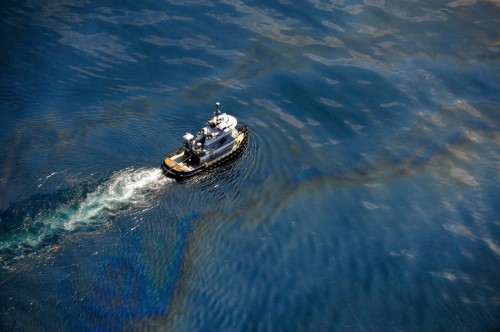

Newfoundland is currently experiencing its largest oil spill in offshore history, with over 250,000 litres of oil leaking from a natural gas platform.
The spill emanated from the SeaRose platform, an oil production and storage vessel located about 350 kilometres off the coast of Newfoundland. According to Husky Energy, which owns and operates the platform, the leak occurred as the platform prepared to restart production in the midst of a fierce storm on November 15.
“We don’t know why this connector has disconnected,” Husky Energy senior vice-president Trevor Pritchard said in a statement.
Husky Energy explained that it had detected a loss of pressure in an underwater pipe that connected to the SeaRose. At the time, the sea was extremely turbulent, which may have caused the disconnection.
Authorities said that the 250,000 litres of oil was “impossible” to clean up; it is the single largest spill of its kind in NL’s history.
The Canada-Newfoundland and Labrador Offshore Petroleum Board (C-NLOPB) has confirmed that no oil sheens had been spotted on the water earlier this week, which could mean that the oil had broken down to a state wherein it cannot be easily cleaned up.
C-NLOPB is now focused on wildlife monitoring and investigating the incident, Global News reported.
Husky Energy has stated that at least 14 sea birds have been oiled; so far, only three have been rehabilitated.
One expert believes the spill could ultimately kill more birds.
“It’s a rough time of year and a cold time of year,” York University professor of environmental studies Gail Fraser told CBC News. “If they get their plumage compromised even by a small amount of oil, they can die of hypothermia.”
Another expert thinks that a spill of this magnitude could have major consequences to the environment – and there is still a lot about the effects of oil spills that scientists do not fully understand.
“I don’t know that we’ll ever know,” remarked Memorial University of Newfoundland university research professor William Montevecchi. “We’re not going to see those birds and that even begs the question of what does it do to plankton? What does it do to fish? I don’t know. I don’t think any of us know. We just know the oil shouldn’t be there.”
